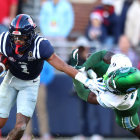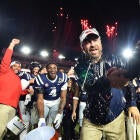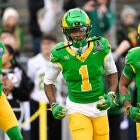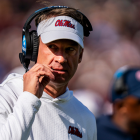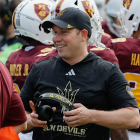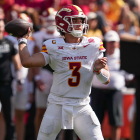Will elimination of National Letter of Intent have an impact on college football recruiting?
How the NCAA eliminating the National Letter of Intent will affect the sport's landscape
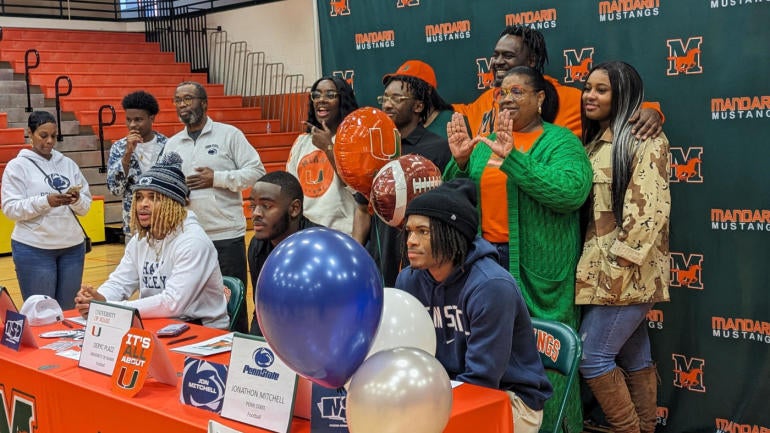
The NCAA Division I Council eliminated the National Letter of Intent program for high school student-athletes on Wednesday. The changes go into effect immediately and are applicable to the 2025 recruiting class. The changes preface the NCAA's $2.8 billion settlement in the House v. NCAA lawsuit, which received preliminary approval this week and allows schools to share up to $22 million each year with student-athletes as soon as the 2025-26 school year.
According to 247Sports, here's what that means:
NLI prevented other programs from contacting signees, and, in return, the schools were legally bound to "provide athletic financial aid for one academic year (two semesters or three quarters).
Now, schools and student-athletes will sign financial aid and scholarship agreements. It aims to keep the core benefits of the NLI program but streamline the signing process between student-athletes and schools. It should also reduce confusion between NLI provisions and NCAA legislation, provide autonomy for institutions to manage their athletic aid agreements and allow for more transparency for institutions to comply with the recruiting commitment.
On The 105, a new college football show from CBS/247Sports devoted to roster management, college football recruiting analysts Cooper Petagna and Andrew Ivins shared their opinion on what the elimination of the NLI means.
Petagna: "It really doesn't mean anything. It's non-news. I think back to my days as the Director of Player Personnel at Oregon and Washington, there was so much trouble that came with the NLi. It's an outdated contract. All that really mattered was the financial aid. Some players never even signed NLIs. They just showed up on campus.
"What's happening here, with revenue-share upon us next year, I think the NCAA is looking for a more solid form of documentation."
Ivins: "I made some phone calls this morning and asked what it changed. They said nothing.
"With that being said, I do want to put this out there in the sphere. The NLI is gone and the consensus is prospective student-athletes will sign financial aid agreements, scholarship agreements. This sets up better with the looming revenue-share, so there will be more of a contract with the players and schools. The one concern I've heard is there needs to be some type of deadline that that paperwork is signed (right now there isn't one), or there needs to be a signing period window, much like the NLI.
"I think it opens up the possibility that some of these high-profile recruitments that get wild negotiations in the 11th hour, those recruitments could spill into January. And you also think with the expanded College Football Playoff the signing period right now is before the conference championship games. I don't think the carousel is really going to spin until after Christmas, so this could end up being that players haven't done anything binding with whatever schools they choose until they step foot on campus and begin classes.
"For the 99% of players, this won't make a difference. For the 1%, they're going to have some leverage."










